Luther´s Birthday:
10th of November 1483 AD
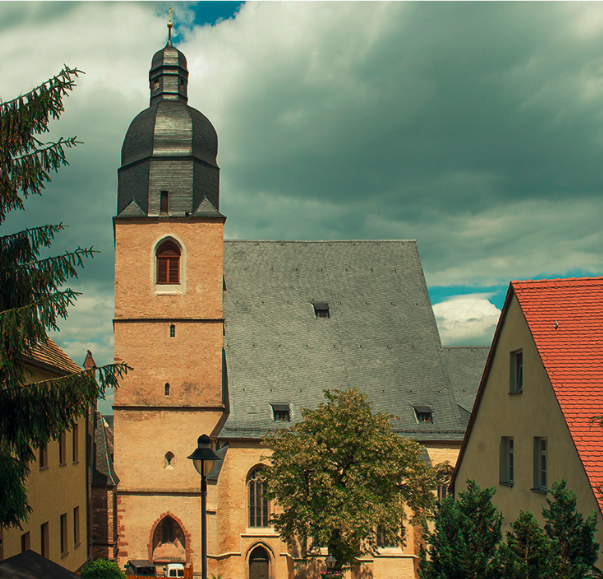
535 years ago today Dr. Martin Luther was born as the eldest child of the wedded couple Hans Luder (1459-1530) and his wife Margarethe born Lindemann (1459-1531) in Eisleben (Today: Lutherstraße 15). It was on Saturday, the 10th of November.
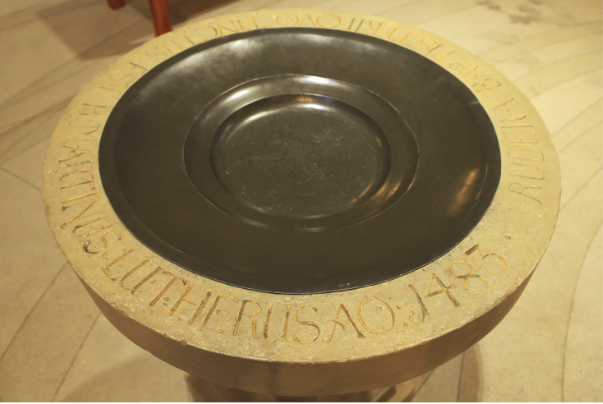
The very next day was the holiday of St. Martin of Tours, so that he was christened in the church of St. Peter and Paul and named after that martial patron saint.
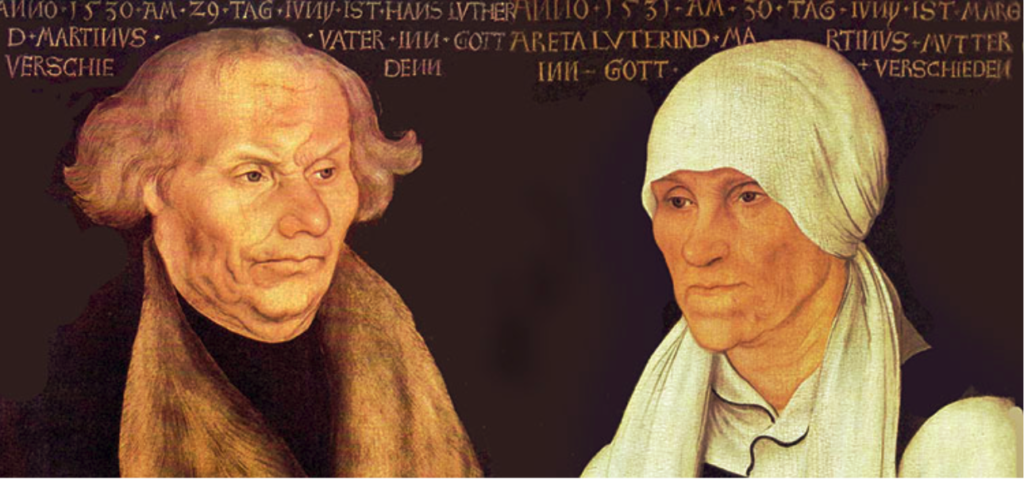
In the beginning of the Reformation around 1517 Dr. Martin Luther changed his name from “Luder” (Literally translated meaning cadaver) to the now popularized “Luther” using the Greek form “ἐλεύθερος“: The liberated one! This name change aptly depicts his personal conversion and gospel story – moved by God´s grace from death to life through faith!
When the church Reformation began to be referred to as “Lutheran”, Dr. Luther vehemently rejected this idea in his “sincere admonition to all Christians to guard against insurrection and rebellion” (1522) as he had no illusions of grandeur. Rather, he was but a “can of worms” and “maggot-fodder” (“Madensack”) as his old name had graphically suggested:
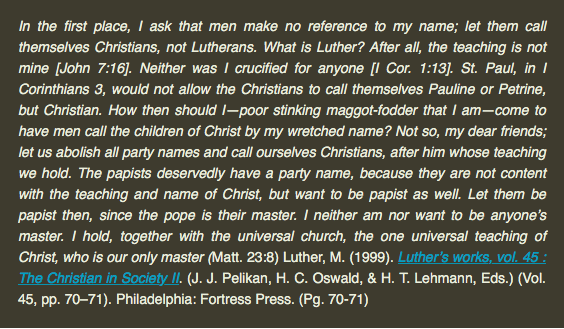
In that same year 1522 Luther writes a dialectical supplement to this matter in the final paragraphs of the pamphlet “Receiving both kinds in the Sacrament”, which is worthwhile considering carefully too:
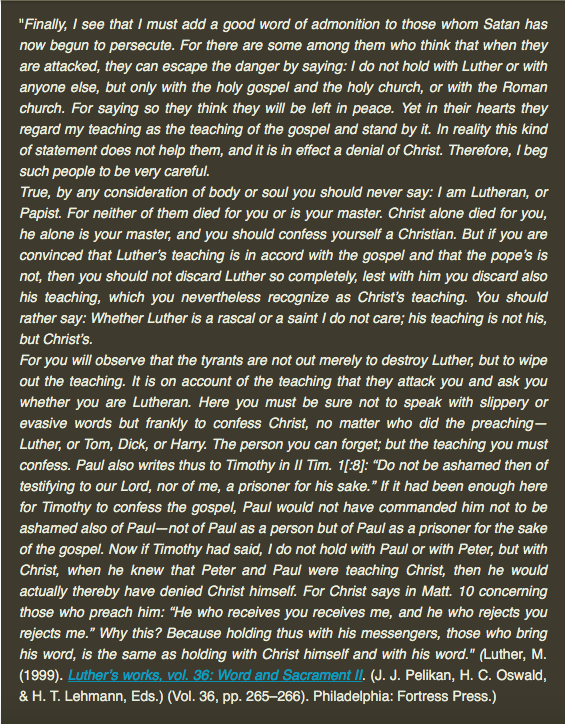
In this latter sense Dr. Martin Luther could tolerate and even charge, that his name be used like a seal and trademark for the recovered and unadulterated gospel.
Dr. Friedrich Wilhelm Hopf takes up this point and illustrates it aptly in his programmatic essay: “Lutherische Kirche treibt Lutherische Mission” in his Festschrift for the 75thanniversary of the Bleckmar mission in 1967 bearing the title “Lutheran Church does Lutheran Missions”. Compare especially the pages 16-17 there.
So, in a similar manner, we too unanimously hold, teach and confess “this blessed doctrine, the beloved, holy Gospel”, which our enemies reject as “Lutherisch” as our very own most dear and precious gospel. The original German version of the 15thArticle of the Apology of the Augsburg Confession uses the term “lütherisch”. (Cf. BSLK 305, 51f in the §43-44.).
It remains our conviction, that “Gottes Wort und Luthers Lehr vergehn nimmermehr” as the Augsburg Confession puts it in clear terms: “The church is to remain forever” (perpetua mansura sit). So, we follow in the ways of our fathers, because like them we know, “Why we are joyfully Lutheran!” (President M.C. Harrison).
Together with our fathers we are confident that it holds as true as it has always done, for He is faithful, who gave it to us as the precious treasure of the church through His apostles and prophets in days of old. We know, that nobody, who puts his trust in Him, will ever be put to shame. Praise him joyfully for that.




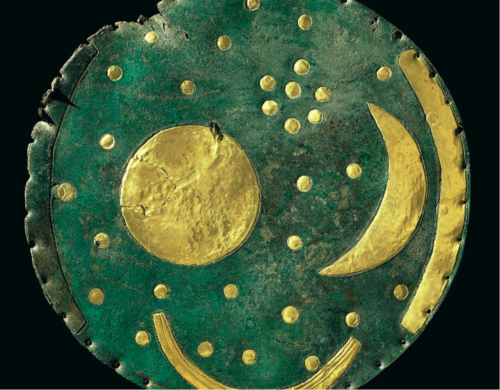
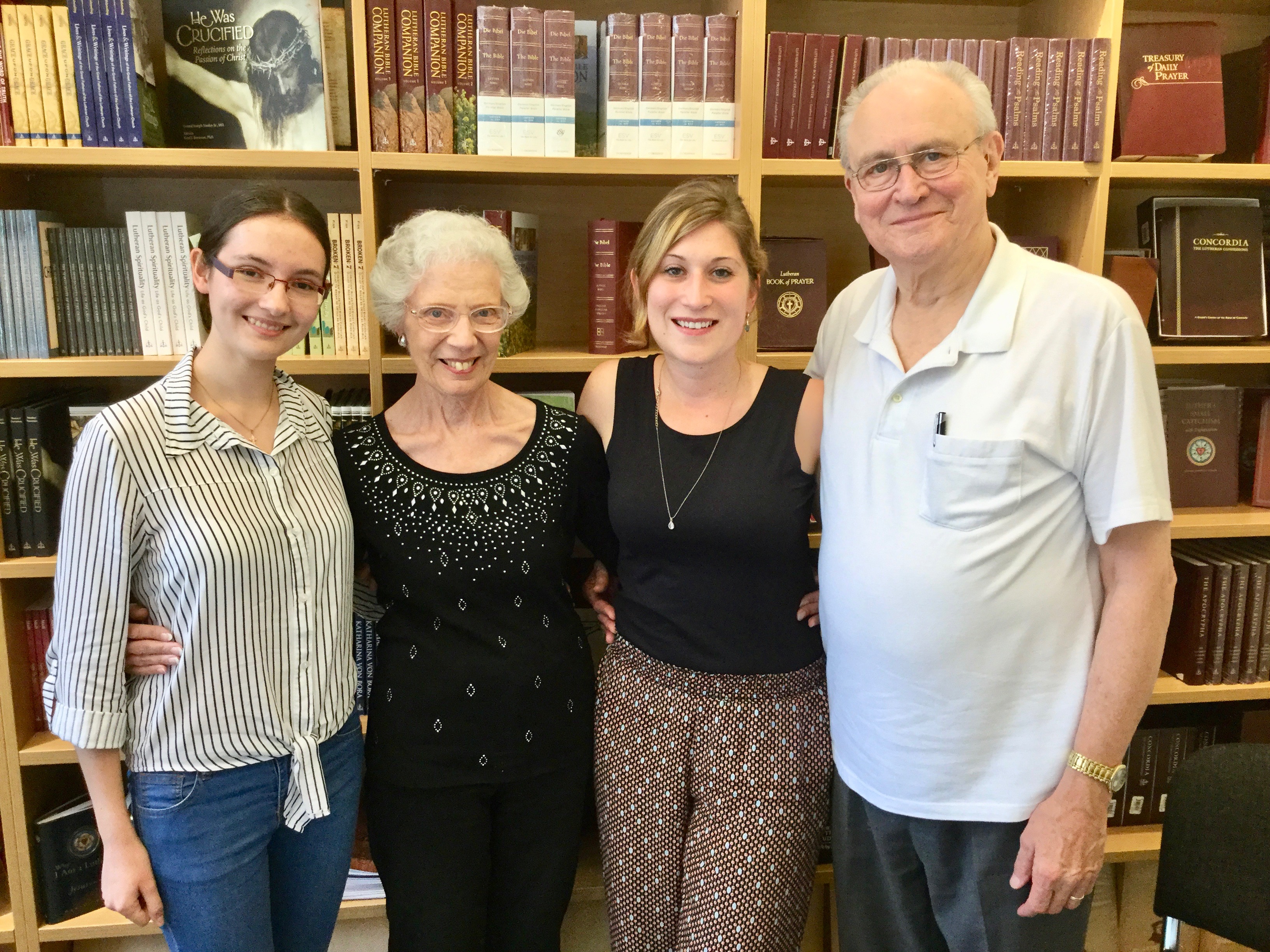
Recent Comments